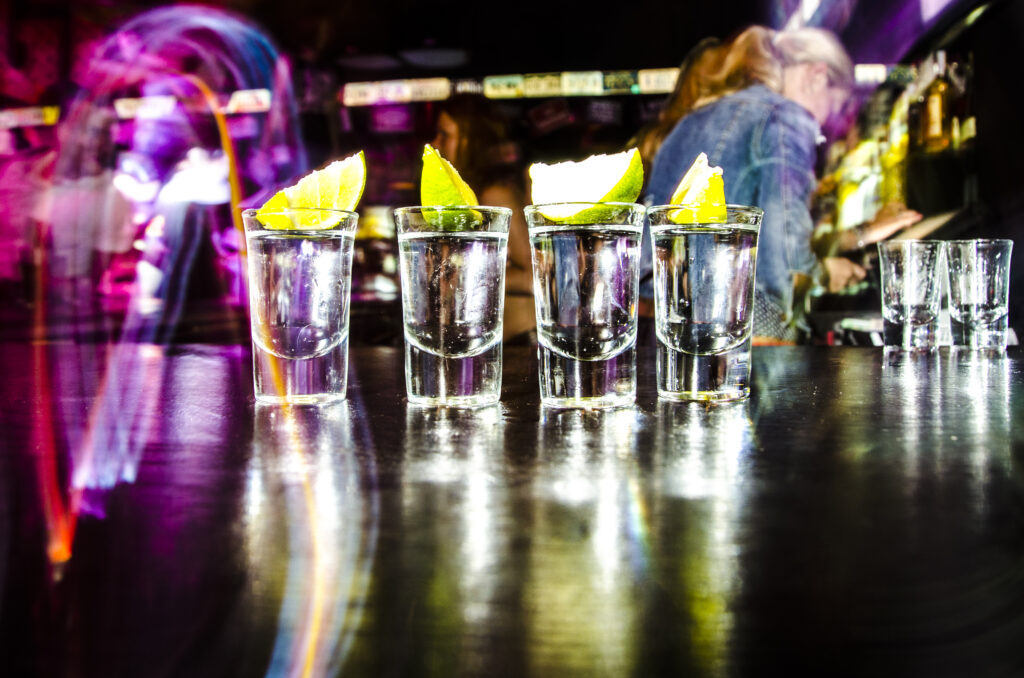Alcoholism is a severely misunderstood condition, which can make it difficult to distinguish the difference between binge drinking and alcoholism.
On one end people may assume alcoholics are on the extreme of the stick — homeless, broke, sick, and dying. On the other end, people may assume getting wasted too often earns you a spot.
So where do we draw the line? In this article, we’ll explore the difference between binge drinking vs alcoholism.
What’s Alcoholism?
Before we get into the differences, we need to get a good grasp on what alcoholism actually is.
While excessive drinking is conducive to addiction, it’s not necessarily alcoholism.
Alcoholism is technically defined as a person’s inability to stop drinking, mainly due to a physical and psychological dependence on alcohol, and characterized by mild to severe withdrawal symptoms.
Withdrawal symptoms occur when a person has used alcohol long enough and their body has become used to it, reacting negatively to the absence in the body.
The most prominent tell-tale of alcoholism is the observance of withdrawal symptoms in the addict.
Alcohol Withdrawal Symptoms
The most common alcoholism mild symptoms include:
- Nausea and vomiting
- Headaches
- Agitation
- Sweating
- Visual and Auditory disturbances
- Anxiety
Severe and life-threatening symptoms may include –
- Delirium tremens
- Seizures
- Wernicke-Korsakoff syndrome
- Anxiety
- Depression and suicidal thoughts
- Sleep disturbances
- Hallucinations
- Cardiovascular complications
What’s Binge Drinking?
Binge drinking is defined as consuming several drinks in a short period of time. More specifically five or more drinks for men and four or more for women within one occasion.
Drinking on a binge elevates blood alcohol content to dangerous levels which may result in blacking out, vomiting, and even passing out; however, the number of consumed drinks can be considered to be a ballpark.
The amount each person needs to reach a certain threshold will be highly dependent on characteristics like weight, height, or tolerance. This means some may reach a dangerous blood alcohol level with as little as two or three drinks.
Risks of Binge Drinking
Binge drinking poses serious risks, similar to those of alcoholism.
Some of the most common risks of binge drinking include:
- Accidents, crashes, and injuries while intoxicated
- Risk of violence
- Risk of STDs
- Unintended pregnancy or miscarriages
- Fetal alcohol spectrum disorders
- High blood pressure
- Stroke
- Heart disease
- Liver disease
- Cancer
- Memory problems
- Other unintended consequences such as missing out on work or acting in ways which one may regret
Sounds familiar? Sure does, it sounds a lot like alcoholism. Then if it sounds so similar – what is the actual difference between binge drinking and alcoholism?
Difference Between Binge Drinking and Alcoholism
Now that we know a little more about what binge drinking and alcoholism are, it’s time we look into some key differences between binge drinking vs alcoholism.
In a nutshell, binge drinking can be as bad as alcoholism without some of its addictive traits. All of the problems that come with being severely intoxicated also come with binge drinking. Issues such as car accidents, fights, and trouble with the law are prominent with both.
The main differentiator between the two is the physical dependency that comes into play with alcoholism. Withdrawal symptoms will not be part of the binge drinking experience; however, this doesn’t make it any less deadly.
But this is not to say that a binge drinker is completely free from the risk of withdrawals. Binge drinking can become alcoholism.
Some of the symptoms that are unique to an alcoholic may include:
- A desire to stop drinking but being unable to do so
- Feeling angry or irritated if the alcohol runs out
- Hands shaking or having tremors after drinking
- Hallucinations
- Trouble sleeping without alcohol
- Hiding drinking habits from others
- Strong alcohol cravings
When to Seek Help
Binge drinking is extremely common in the United States. In fact, one in six adults binges in the US. But does that mean one in six adults should be looking for help? Or is help only for alcoholics?
If a person’s drinking becomes a problem, they should seek help even if they are not an alcoholic.
The dangers associated with binge drinking can be as severe as those associated with alcoholism, since abusers may get themselves into situations that are dangerous to themselves and others.
No matter how severe the condition is, you or your loved one may need to seek help if signs and symptoms of problematic drinking are present.
Ava Recovery is a luxury rehab located in Buda, Texas – right outside of Austin. Ava offers a world-class luxury experience at their evidence-based, drug and alcohol rehab facility. Ava Recovery is a luxury recovery center with expertise in treating alcoholism.
Contact Ava to speak to a specialist and find the treatment that’s best suited for you or your loved ones.







